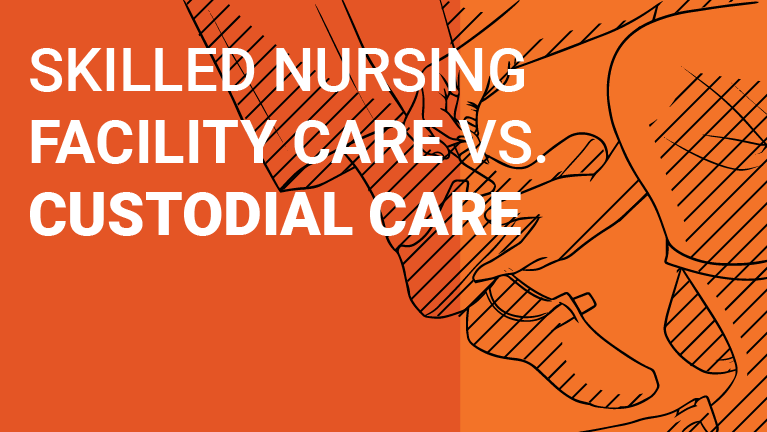Long Term Care Coverage
Medicare has very little coverage for continued care, unless your doctor has created and regularly reviews a plan of care that requires the assistance of skilled or custodial services. The main differences in services are the medical license required and the nature of the care. Skilled care is intended to treat an injury or illness, help you recover from ailments, or help you maintain your health. Your doctor orders these services. Custodial care is intended to aid in your daily functioning and quality of life, and is especially important if you do not have a caregiver for assistance. Medicaid can help you afford long term custodial care, if you qualify.
Skilled Nursing Facility Care
Medicare covers care in a skilled nursing facility that is medically necessary and can only be provided by skilled healthcare workers. Beyond skilled nursing care, this can cover physical therapy, speech-language pathology services and occupational therapy.
Inpatient services you receive at a skilled nursing facility are covered by Medicare Part A when you have a qualifying stay as an inpatient in the hospital for at least three days. Your coverage lasts for 100 days, at which point you owe all costs.
When you have received all of the skilled care services you need, you will transition back to your home or on to custodial care, which is often performed at live-in long term care facilities you may know as nursing homes.
Custodial Care
Custodial care, which is sometimes called personal care, is the type of long term care that Medicare will not cover, if those services are the only ones you need. Custodial care can be performed by non-medical personnel, and you can receive these services at your home or as part of your long term care services in a nursing home.
The types of services that fall under custodial care include help with the activities of daily living (ADLs). Those are functions that include feeding yourself, bathing, getting dressed, and using the restroom. If you are being evaluated for long term care services, the providers will assess your ability to perform these essential activities. People who need help with more than a few of these activities will be good candidates for a long term care facility and ongoing custodial care.
Sometimes custodial care will include assistance with the instrumental activities of daily living (IADLs). These are functions that are typical and necessary to run a household, but can be difficult to accomplish when you need care. Some instrumental activities include shopping, getting groceries, cooking, and managing finances.
At Magellan Healthcare, we know that Medicare terms can be easily confused. Have a question? Let’s clear that up in a personalized consultation. Contact us today to schedule.


